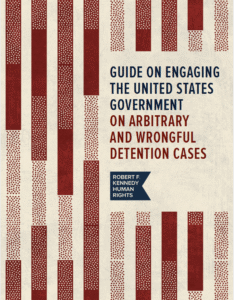Robert F. Kennedy Human Rights and the Tahrir Institute for Middle East Policy condemn Egypt’s new nongovernmental associations law, which was approved by the Egyptian parliament on Tuesday. The new 89-article law on civic organizations, which was drafted by Egypt’s House of Representatives, is a much more restrictive bill than the one proposed by the cabinet in September, which seems to have been abandoned in favor of the current legislation.
While the September law was rejected by rights organizations on account of a wide swathe of concerns—most notably the unconstitutional power given to the security apparatus to challenge the formation of an NGO—the current law is much more alarming. The new bill makes registration mandatory and allows permission to operate to be withheld if activities are deemed harmful to national security, a term that is broadly defined and can be abused to constrain legitimate activity. In a joint press statement issued Tuesday, local political parties and civil society organizations expressed their rejection of the law.
The bill stipulates the creation of a body called the “National Agency for the Regulation of Foreign Nongovernmental Organizations,” which includes representatives of the military, the General Intelligence Directorate, the Ministry of Interior, and other ministries and government entities. The agency holds authority over the entirety of the work of international NGOs, along with funding and cooperation between Egyptian associations and any foreign body. The bill also includes concerning funding regulations, stipulating that the Ministry of Social Solidarity must be notified of domestic donations and funding 30 days prior their receipt; the agency reserves the right to reject foreign funding for a 60-day period after funds are deposited, during which these funds may not be disbursed without facing possible dissolution. If no approval is given in that 60-day period, the request is considered denied.
Additionally, the law gives the government the authority to monitor and challenge any NGO’s internal activities, however insignificant. This extends from choices in leadership to the schedule for internal meetings. Even a change as slight as moving headquarters to another building without informing authorities is punishable by the law.
Beyond the concerns associated with the new legislation’s unprecedented restrictions on civil society are other worries regarding the punitive measures for violation of the provisions. Those who conduct NGO work without registration or collaborate with international organizations without approval are subject to prison sentences of up to five years and fines of up to one million Egyptian pounds (about $65,000). The law also holds NGOs’ management personally liable for violation of any of the aforementioned measures.
The law is being submitted to the State Council, followed by another review and vote within parliament before being sent to President Abdel Fattah El-Sisi for final approval.




